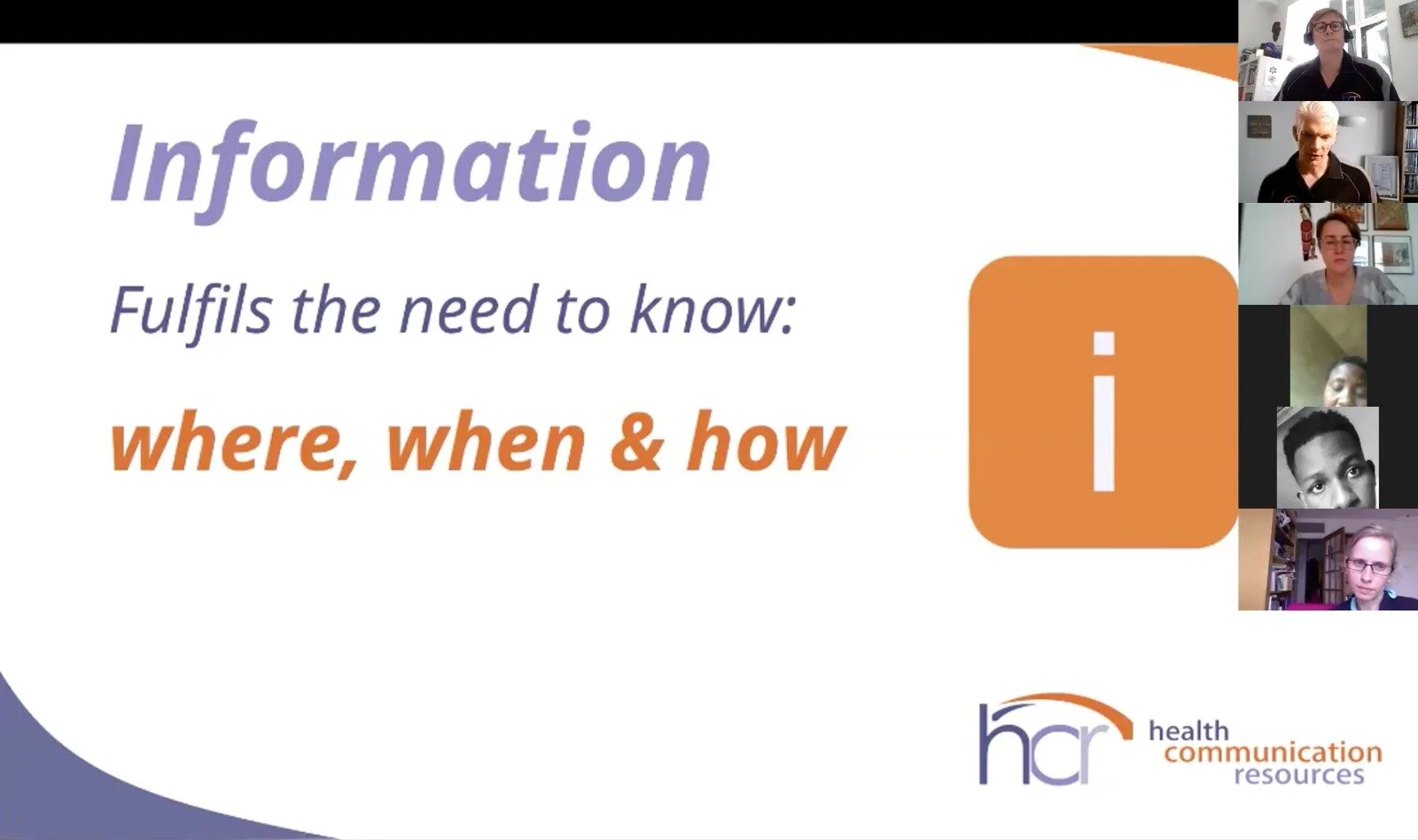Johnny Fisher
“… you’re still on mute! …”
If I could have a pound for every time I hear that phrase, I could probably fund our projects many times over!
Love them or hate them, free Zoom webinars quickly established themselves in March this year as a means for organisations to contribute in the prevailing spirit of mutual cooperation we saw across the UK and in many other countries.
At HCR, we realised that we could help other community development organisations who were looking for new ways to use media to engage with their partner communities remotely. We offered free webinars to introduce community-centred media to organisations such as Tearfund, Mothers Union and World Challenge. People, who normally work in community-led development projects, told us how glad they were to hear about media strategies that would allow them to continue supporting grass-roots work without having to resort to top down, message-centred approaches.
We were by no means new to Zoom or to video-calls, but we soon learned a lot of new things about using Zoom. Conceptual Powerpoint slides that worked well in face-face workshops, seemed harder to explain when people could not clearly see your face.
The challenge of engaging with speaker and slide together
It was also harder to gauge whether people were tracking with you when you could not see participants faces clearly. Group discussions struggled to flow thanks to the infamous mute-unmute delays. (And sometimes thanks to the lack of mute, with background roosters cock-a-doodle-do-ing our discussions into obscurity!).
In one case, the network connections were so poor for participants, calling in from remote locations in Liberia, Burundi, Uganda and Kenya, that we abandoned Zoom and used WhatsApp audio calling. We shared the key powerpoint slides as image files in WhatsApp.
Most of the people attending the webinars were in strategic leadership positions. Yet, we found it helpful to focus less on strategy diagrams. Instead we started to build our webinars around stories that demonstrated community-centred media in action. We took real situations and outcomes from projects in contexts similar to those where participants work and we wove them into illustrative narratives.
Despite the challenges of 2-dimensional Zoom calls, we could see a marked increase in webinar participants’ engagement, through their perseverance in maintaining discussion flow despite mute-unmute issues, and also in their feedback describing how they would community-centred media learning in their contexts.
But where does this lead? Should we continue doing webinars? After all, we can’t observe the impact this has on communities in the same way we can with face-face community consultation workshops. We exist to see communities living life in all its fullness, free from poverty, injustice, and violence. We work towards that by equipping local partners in communities facing disadvantage or crisis, to use community-centred media to bring people together, to mobilise local resources and tackle challenges identified by community members. Is any of this happening when we run webinars for people in head offices of large organisations?
Last week we heard from one organisation that their partners in Burundi had run a national radio campaign to address misinformation and education gaps around Covid-19. The leader of the campaign had attended one of our earlier webinars. He shared several observations from his teams working directly with communities to make the radio programmes. A global leader for the organisation said “this radio campaign would not have been as effective, was it not for the training you provided”.
In the partner’s evaluation, reporting on interviews in 580 communities in 11 provinces, we saw evidence of community-centred media practices and evidence that these resulted in community members and service providers working together to tackle Covid-19 misinformation and infection causes:
“Besides the messages [from experts], plays have proved to be a powerful tool in sharing hygiene messages … Burundi community has been mobilized and is also empowered to stand firm against COVID 19.”
“The community shares accurate information regarding Coronavirus, knows how to prevent and stop the spread of the Coronavirus and many have taken the right attitude against Coronavirus (wear masks, wash hands and respect social distance).”
Interviewing a community leader in Muyinga province near Tanzania border
“The program was useful to aware and mobilize the people in my county how to prevent COVID-19, and due to the program, all shops, markets, churches and mosques of the county have put buckets with taps and soaps where everyone must wash hands before to enter into them”




